The HTC One M9 Review: Part 1
by Joshua Ho on March 22, 2015 7:00 PM EST- Posted in
- Smartphones
- HTC
- Qualcomm
- Mobile
- Snapdragon 810
- One M9
System Performance: Snapdragon 810
We've been able to test Snapdragon 810 before, but it was only in the context of Qualcomm’s developer platform tablets and phablets, which have a higher possible TDP than shipping devices, and generally doesn’t have any need for battery life as these devices usually spend all of their time plugged into a charger. Thus, the One M9 represents our first experience with a Snapdragon 810 device with shipping software and hardware. HTC noted during the review process that our devices were running non-final software, and we received an OTA update that significantly changed the thermal throttling characteristics of the device, but this seems to have only affected performance in situations where the SoC was nearing maximum acceptable skin temperatures as performance in these benchmarks were relatively unchanged.
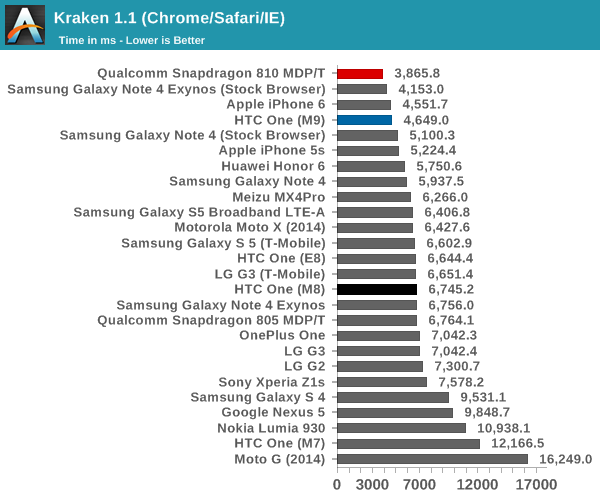
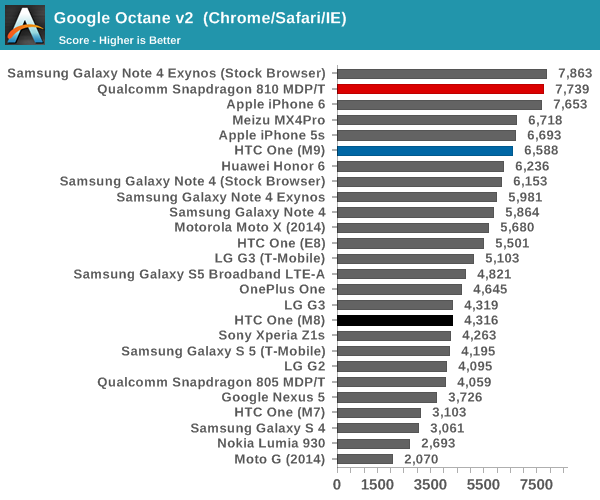
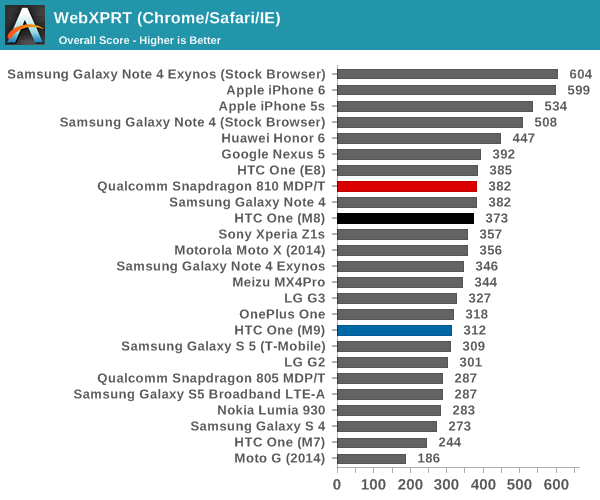
In our first few browser tests, we can see that the One M9 posts dramatically lower performance than the Snapdragon 810 MDP/T, which seems rather strange. However, using CPUBurn to try and load just a single thread reveals that without HTC’s CPU cheats, it’s basically impossible to get the A57 cluster beyond 1.5 to 1.6 GHz. It's important to emphasize that this isn't new behavior, as this was present on pre-release software as well, which means that HTC didn't do this at the last minute.
For those that are unfamiliar with how HTC's CPU cheats work, HTC continues to rely on some level of benchmark detection, and it seems that when a benchmark is detected it enables a "High Performance" mode in the developer settings with no option to disable this mode. It's possible to work around this mode by using benchmarks that evade such detection mechanisms (and we do), but it's also possible manually toggle this mode on and off if a benchmark isn't detected. This benchmark mode appears to relax throttling constraints, but more obviously it enables one to go from a maximum of 1.6 GHz to the rated 2.0 GHz of the Snapdragon 810 for extended periods of time. However, even in this mode we can see that a sustained load of a single thread on the A57 cluster will cause the cluster to throttle to 1.7 GHz in this mode, while without this mode enabled we see that a single thread will eventually cause the A57 cluster to clock around 1 to 1.2 GHz. If the normal governor does allow the SoC to reach 1.9 GHz, I can't really perceive the amount of time that it does reach such a speed.
The most concerning result is WebXPRT, which is a bursty workload that runs over a few minutes, which suggests that we’re already seeing thermal throttling in the M9.
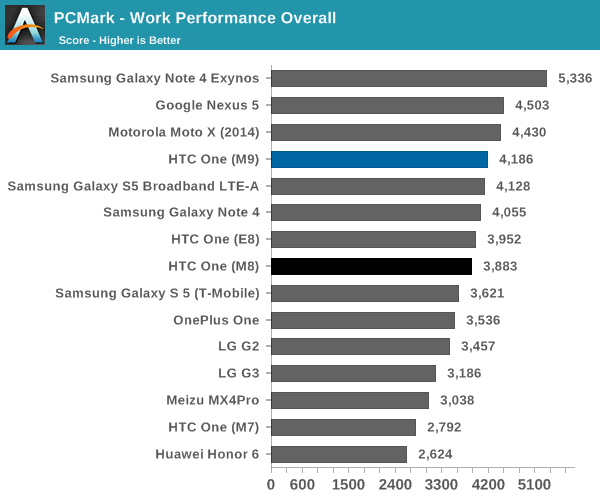
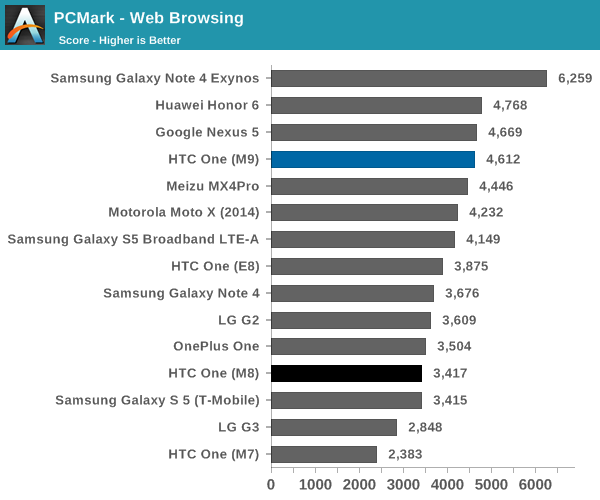
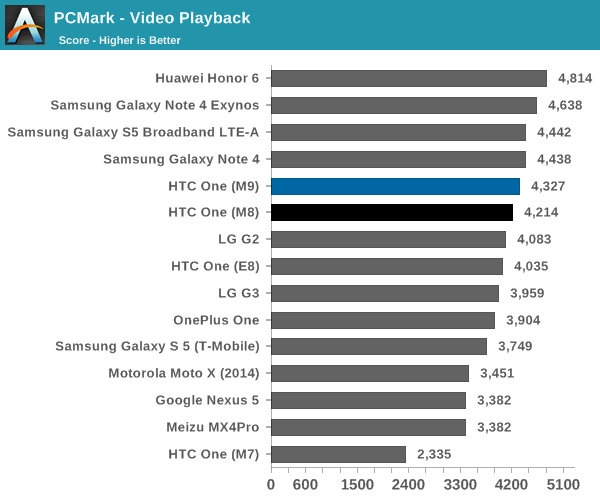
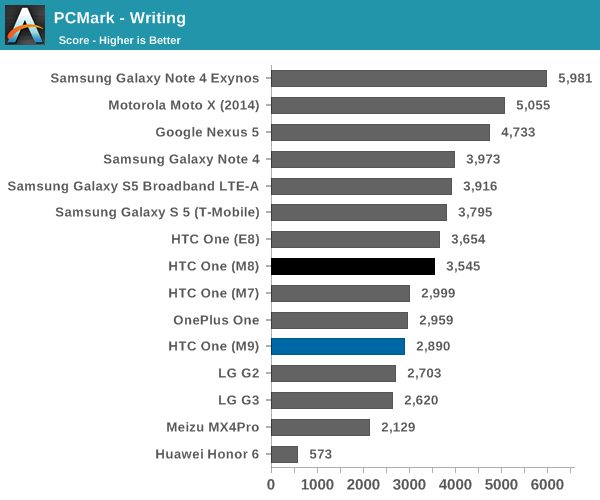
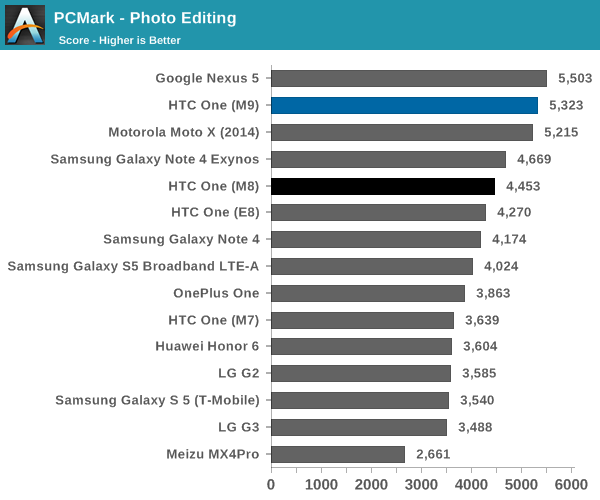
In PCMark, which is a benchmark that tends to focus strongly on race to sleep scenarios, we can see that the Snapdragon 810 appears to significantly trail behind the Exynos 5433, which is on a similar process node. It's hard to say whether this is due to the scheduler configuration or differences in the physical design of the SoC, but at any rate this is another concerning performance from the SoC of the One M9.
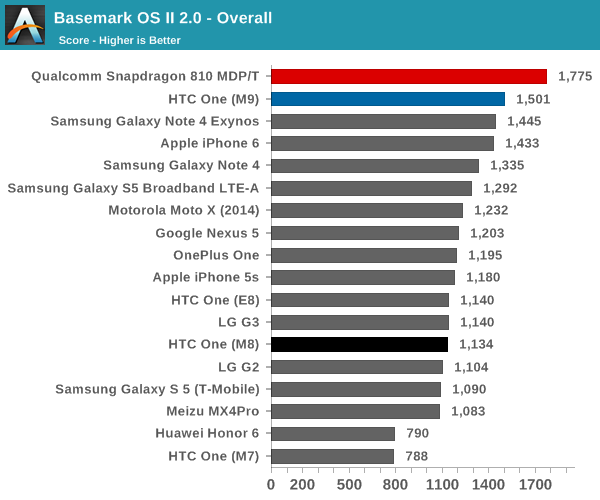
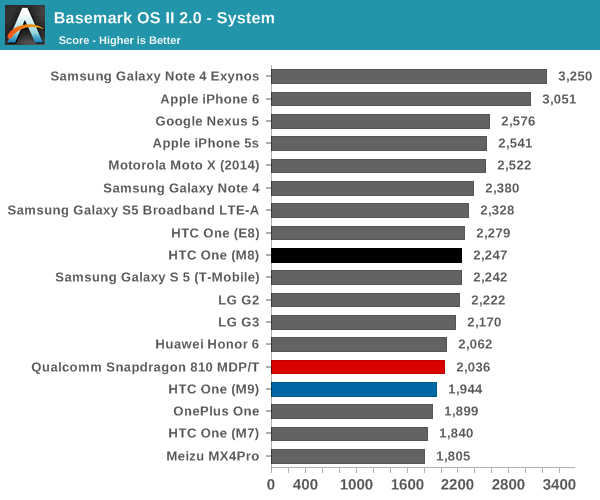
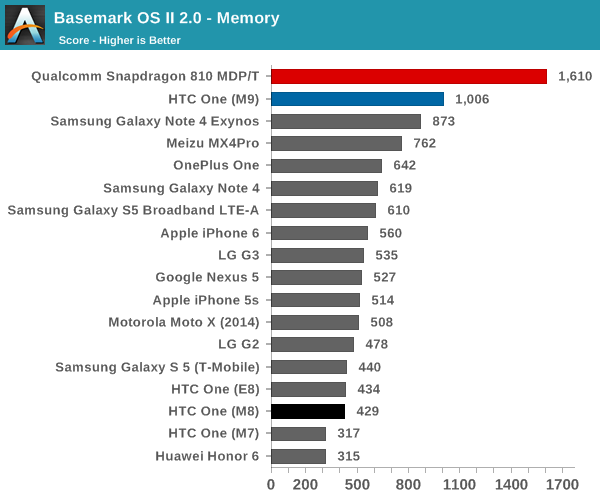

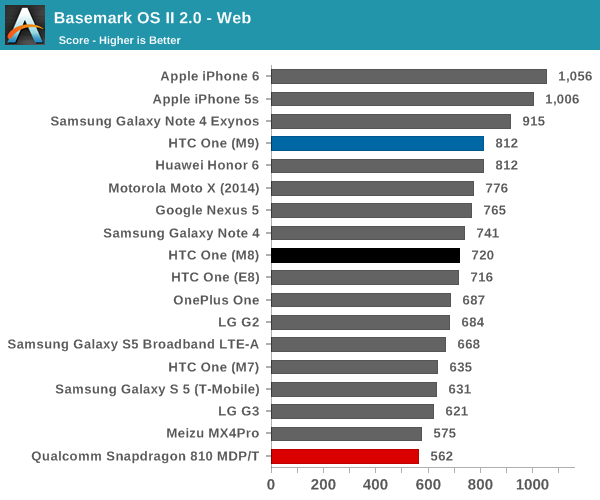
Moving on to the general system performance tests, we see that the M9 delivers a reasonable improvement in performance over the M8, but most of the difference seems to come from the GPU and storage performance rather than anything else that was tested. Overall, the Snapdragon 810 really isn’t off to the best start in any test we’ve thrown at it so far. To see if Snapdragon 810 has any redeeming features we’ll look at GPU performance next.


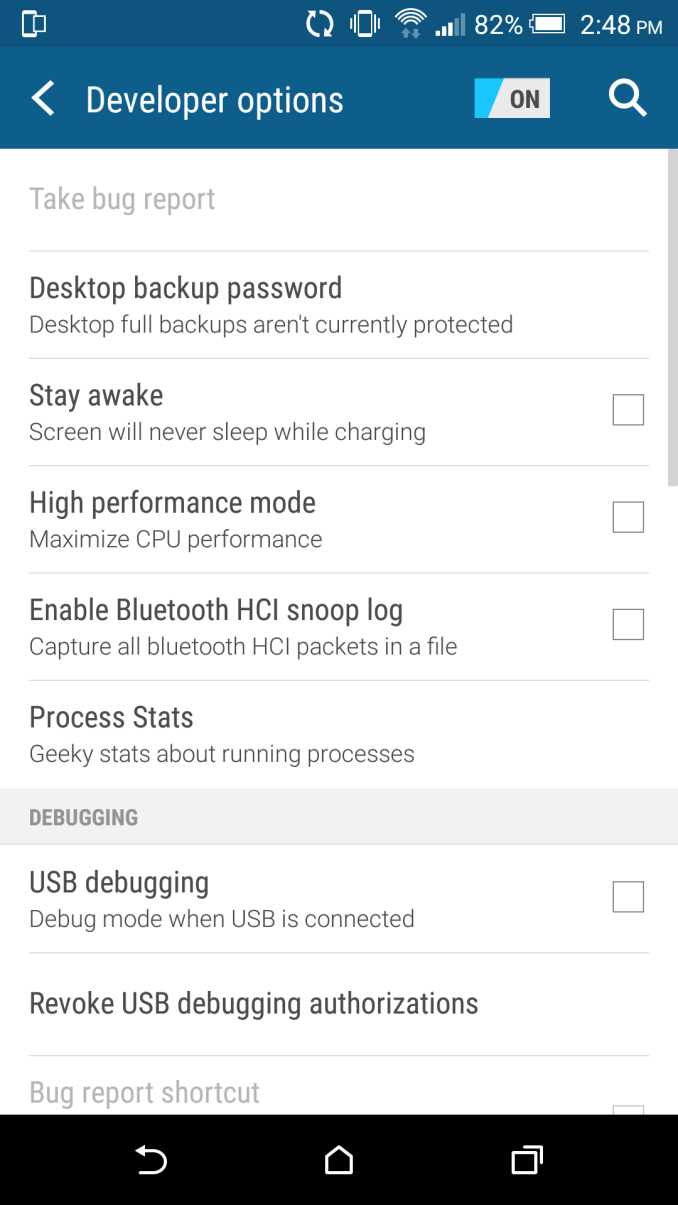








132 Comments
View All Comments
Laststop311 - Monday, March 23, 2015 - link
This actually might be the worst successor in a phone line ever made since smartphones became a thing. Someone is getting fired at HTC when they post record lows in profits.lilmoe - Monday, March 23, 2015 - link
Someone is already (sort of) fired...kron123456789 - Monday, March 23, 2015 - link
Snapdragon 810 is a disappointment. I think it's less efficient than even Tegra K1 Denver(which is 28nm, btw).DeciusStrabo - Monday, March 23, 2015 - link
You think? The K1 draws up to 5 Watts of power. The 810 does less than 2 (for the complete phone).kron123456789 - Monday, March 23, 2015 - link
Yeah, right, 2W. Under significant throttling and 1GHz frequency. 2W chip cant produce that much heat.And btw, where did you get the information about 2W?
lucam - Monday, March 23, 2015 - link
I saw the 810 present on new Sony Tablet experia. It doesnt have the same problem of this one due less thermal constrain, but the performance are far away from the K1 or A8X, with huge disappointment.testbug00 - Monday, March 23, 2015 - link
Um. One, you're K1 numbers are WAY OFF, For either version. A15 cores draw ~3.5W @ 1.9Ghz. Over 4W at 2.3Ghz.The 1 SMX Kepler GPU and uncore draws far over 1 Watt. A lot more.
The K1 is a 10W power usage part at best. The 810 isn't much higher... Which seems bad, until you realized the A57 cores draw over 50% more power.
Gunbuster - Monday, March 23, 2015 - link
I wonder how this is going to play out with Microsoft who is locked in to Qualcomm for SOC's?They have the luxury of (some) time as the new premium handsets are waiting for Windows 10.
Will they release late with this same crap underclocked 810 like the M9?
Will they switch to another SOC?
Will Qualcomm fix the 810?
testbug00 - Monday, March 23, 2015 - link
Given Windows 10 for phones has a lot of CPUs from multiple companies supported, what's the problem?Also, what's broken with the 810? It behaves exactly like one would expect a 10-15W SoC to in a phone...
Gunbuster - Tuesday, March 24, 2015 - link
Would love to see a document that supports that claim.